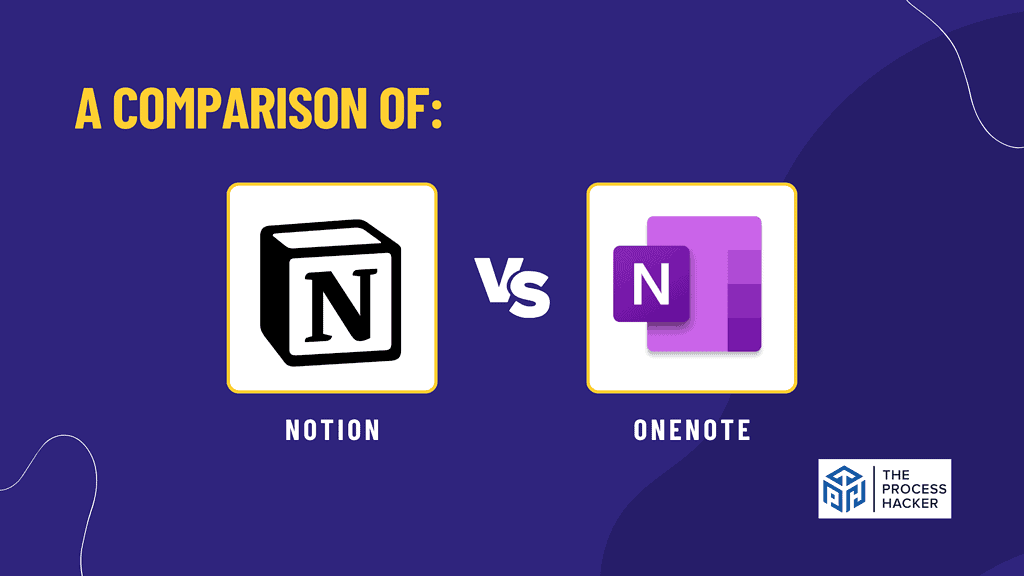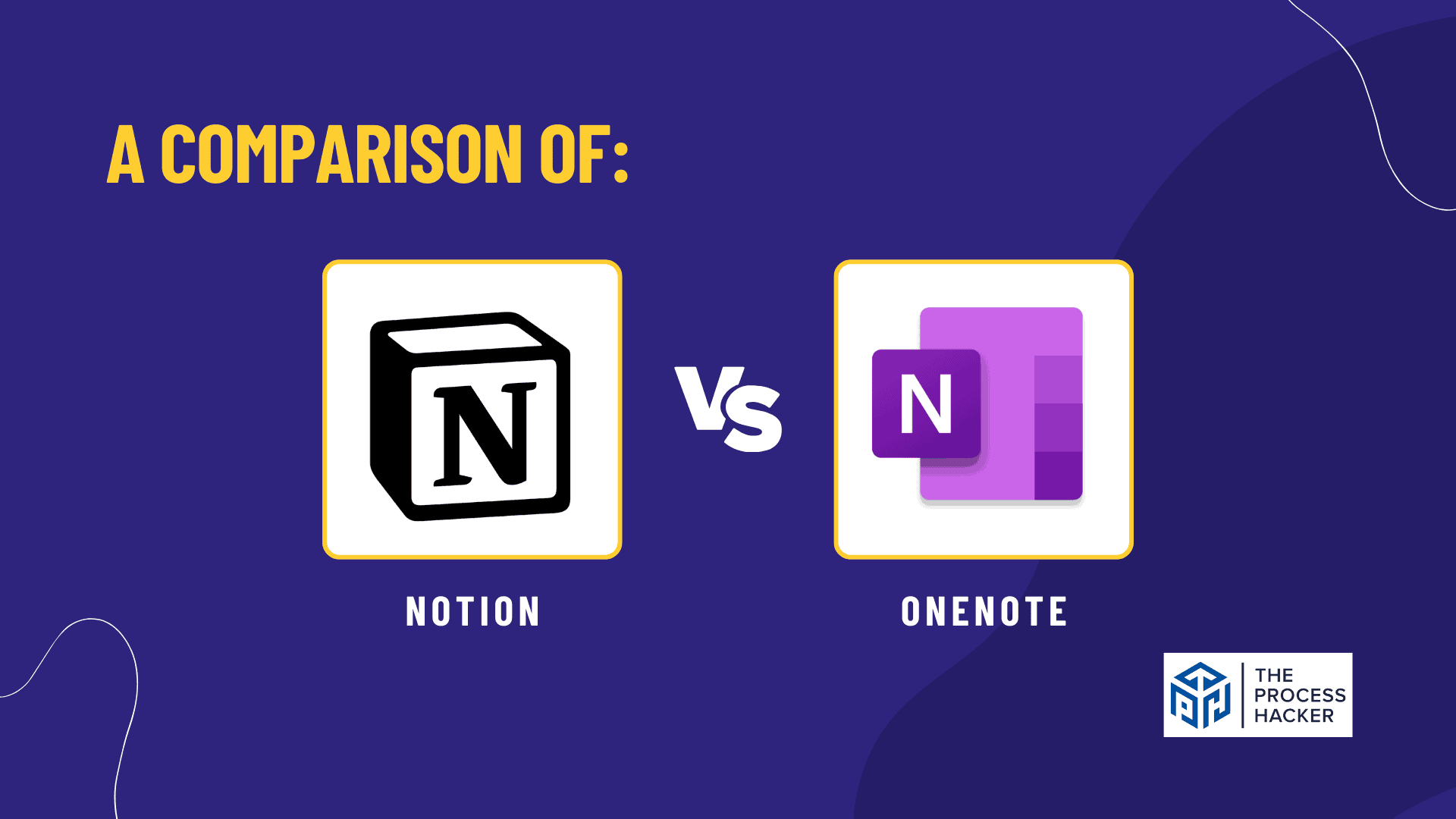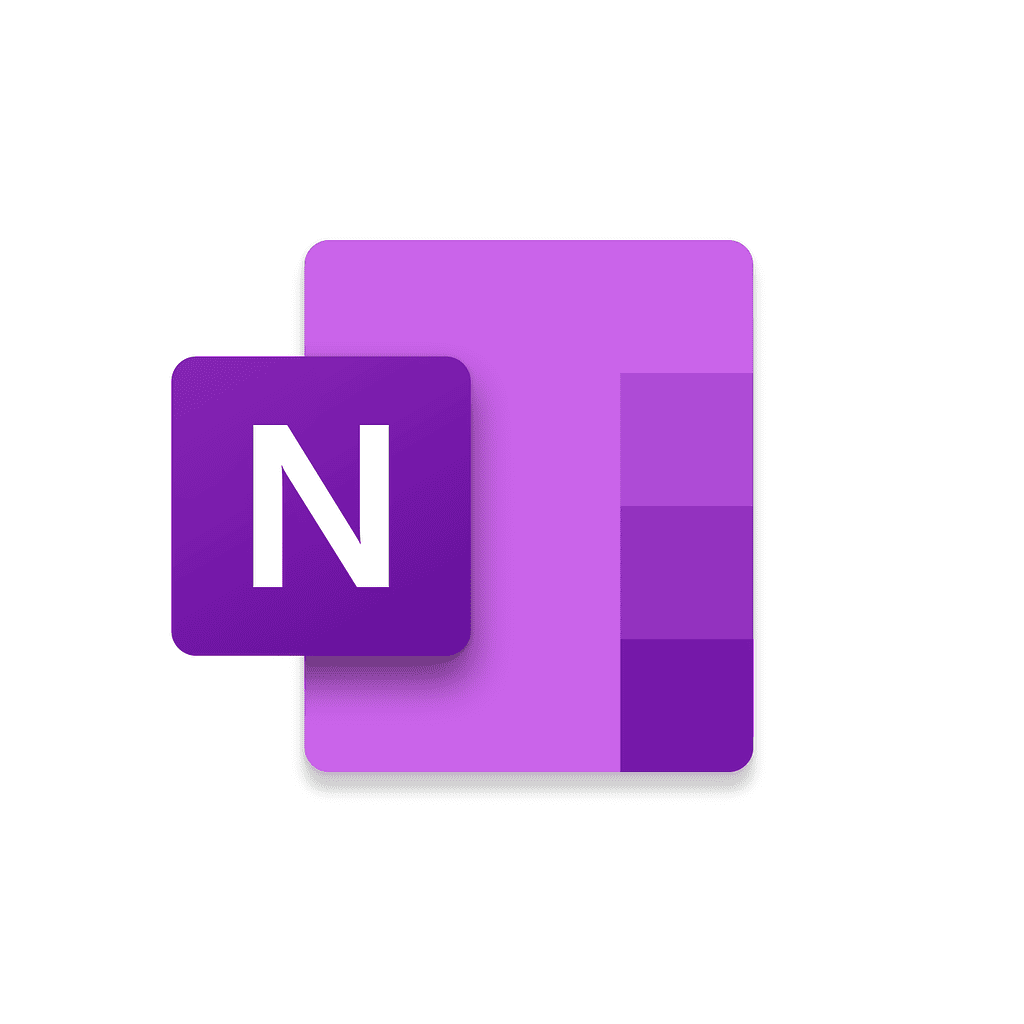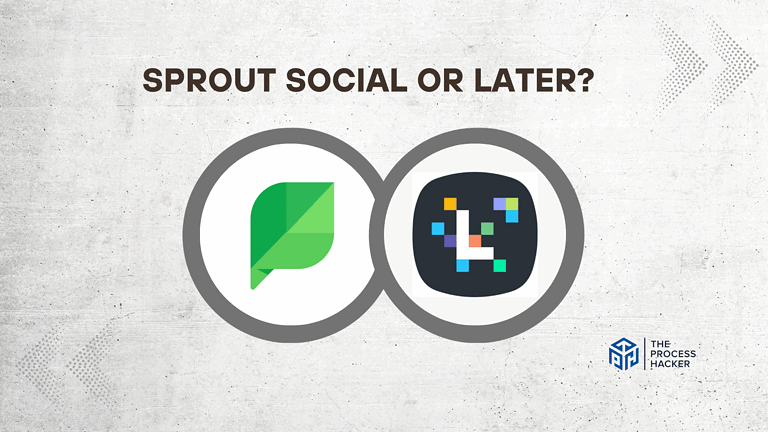Notion vs OneNote: Which Note-Taking App is Better?
In today’s fast-paced and digital world, note-taking apps have become essential for business owners to stay organized, productive, and efficient.
With the abundance of available options, choosing the right one can be daunting. Two popular AI note-taking tools that are often compared are Notion and OneNote.
If you purchase through our partner links, we get paid for the referral at no additional cost to you! For more information, visit my disclosure page.
Both offers features such as creating to-do lists, setting reminders, and organizing information in a user-friendly manner. However, deciding which suits your business process needs can be overwhelming.
This blog post will objectively compare Notion vs OneNote based on features, functionality, pricing, and overall user experience to help you decide which app is best suited for your business. So, let’s dive in!
Brief Overview: Notion vs OneNote
First, I’ll give you a quick overview of Notion and OneNote:
Notion
Notion is a flexible workspace that merges notes, wikis, databases, and AI project management capabilities. It emphasizes adaptability and the ability to build custom systems that fit your needs, whether you’re using it to plan a business trip or map out a project’s timeline.
Key Selling Points:
- Versatile and customizable workspaces
- Integrated task and project management
- Note-taking with rich editing tools like meeting notes
- Collaboration features for team projects
- Database support for advanced organization
- Strict security features and optical character recognition
OneNote
Microsoft OneNote tool designed for capturing and organizing notes in a free-form manner. Think of it as a powerful digital notebook that lets you gather and keep a wide range of information.
Key Selling Points:
- Seamless sync across devices
- Integration with Microsoft Office Suite
- Freehand drawing and easily create notes
- Audio notes recording and playback
- Multiple note-taking formats for quick note creation
Quick Verdict: Notion vs OneNote
Notion stands out for its unparalleled flexibility and modular design. It allows users to create and manage notes, databases, kanban boards, and wikis all in one app.
Its strength lies in the ability to tailor almost every aspect of the note-taking experience to personal or team needs, making it an ideal solution for those seeking a comprehensive productivity platform.
Notion’s versatility supports a wide range of applications, whether for personal use or collaborative projects, from simple note-taking tools to complex project management.
OneNote shines with its robust note-taking capabilities and seamless integration with the Microsoft Office Suite. Its freeform canvas approach to notes, allowing users to type, draw, or clip from the web anywhere on a page, caters to those who prefer a more traditional yet flexible note-taking experience.
OneNote is particularly effective for individuals and teams already invested in the Microsoft ecosystem, offering a smooth workflow automation with applications like Word, Excel, and PowerPoint.
Product Overview: Notion vs OneNote

What is it?
Notion is a workspace that combines notes, databases, advanced project management, AI SEO, and productivity tools, and more. It allows you to design a highly personalized system for organizing your work and ideas.
OneNote is a digital notebook from Microsoft. It lets you capture text notes, drawings, audio recordings, images, and other content creation processes in a flexible, free-form environment.
Who is it for?
Notion is ideal for those who crave a structure beyond traditional note-taking. Businesses, teams, and individuals who need to manage information and daily plans, track projects, and build internal knowledge bases thrive with Notion. It is also one of the best AI tools for college students.
OneNote is excellent for students, casual note-takers, and anyone who values a digital space mimicking a physical notebook. It’s also perfectly suited for those deeply embedded in the Microsoft Office ecosystem.
What makes it special?
Notion stands out through its adaptability. Its modular design and database-like functionality allow you to tailor your workspace precisely to your work style, something traditional note-taking apps lack.
OneNote‘s strengths lie in its familiar format and free-form flexibility. Its organization of notes closely resembles that of physical notebooks, and it effortlessly accommodates diverse input types.
What does it do?
Notion is a multi-functional workspace where users can write, plan, collaborate, and organize everything from notes to complex projects. It supports various AI marketing and content automation types, including text, images, and databases, and offers extensive customization to tailor the workspace to specific needs.
OneNote allows users to collect notes, drawings, screen clippings, and audio commentaries. Notes can be shared with other OneNote users over the Internet or a network, facilitating collaboration. The app’s ability to integrate with other Microsoft applications enhances its utility for organizing and accessing information across devices.
Quick Comparison: Notion vs OneNote
| Key Features | Notion | OneNote |
|---|---|---|
| #1) Pricing | Winner | |
| #2) Free Plan | Tie | Tie |
| #3) Design & Functionality | Winner | |
| #4) Project Management | Winner | |
| #5) Note-Taking App | Winner | |
| #6) Task Management | Winner | |
| #7) Microsoft Ecosystem | Winner | |
| #8) Team Collaboration | Winner | |
| #9) Knowledge Management | Winner | |
| #10) Database Features | Winner | |
| #11) AI & Automation | Winner | |
| #12) Integrations | Winner | |
| Overall | Winner | |
| Overall | Winner |
Feature Comparison: Notion vs OneNote
Let’s compare the features of these note-taking solutions so you can make the right decision for your business.
#1) Pricing
Notion’s pricing structure is quite straightforward. Their Plus plan, which is billed monthly, starts at $10. This plan accommodates a spectrum of functionalities, making it a versatile tool for various tasks. It also offers Business and Enterprise plans tailored to meet the needs of larger teams or organizations.
Conversely, OneNote’s pricing is tied to the Microsoft Plan one subscribes to. The most affordable option is the Microsoft 365 Personal, priced at $6.99. This plan provides access to OneNote along with other Microsoft Office tools.
When considering which product offers better value for pricing, it largely depends on the individual or team’s specific needs and usage patterns. Notion’s standalone pricing is higher but provides broad features geared towards project management and collaboration.
Being part of the Microsoft 365 suite, OneNote provides a more cost-effective solution for those already invested in or needing other Microsoft applications, making it an excellent option for integrated productivity.
Verdict: For pricing, it’s Notion as the decision hinges on whether the user prioritizes a more comprehensive toolset for collaboration and project management.
#2) Free Plan
Notion provides a free plan with unlimited pages and blocks, allowing individuals to explore the platform’s capabilities fully without investing upfront. However, file uploads are limited to 5MB, and there is no option for guest collaborators.
In contrast, OneNote also has a free version available. It offers unlimited notes, and there are no restrictions on the number of devices you can use it on. However, storage is limited to the available space in your OneDrive account, which is 5GB for free accounts.
OneNote offers a more unrestricted experience when considering the free plans, with no note size or device usage limitations. However, Notion’s free plan provides a substantial offering for individual note-takers who do not require extensive file upload capabilities.
Verdict: The choice between Notion and OneNote for the free plan depends on your specific requirements. OneNote may be better if you need unrestricted note size and multi-device usage. However, if you’re looking for a robust note-taking tool without extensive file uploads, Notion’s free plan would serve you well.
#3) Design & Functionality
Notion boasts a clean, minimalist design that supports drag-and-drop functionality, making it easy to organize content. It stands out for its versatility, allowing the creation of databases, kanban boards, calendars, and more, all within a unified interface. This adaptability makes it an all-in-one software workspace for various information management and collaboration types.
OneNote features a familiar notebook-like interface with a flexible canvas that mimics the traditional pen-and-paper experience. It excels in free-form note-taking, enabling individuals to type, draw, and clip from the web. Integrating Office tools enhances its functionality, particularly for those already embedded in the Microsoft ecosystem.
When comparing design and functionality, Notion emerges as the more versatile platform. It offers a wide range of tools for project management, note-taking, and collaboration in a sleek, modern interface. While robust, OneNote primarily excels in capturing and organizing notes in a free-form manner.
Verdict: Notion provides a more comprehensive and flexible solution for design and functionality, catering to a broader set of needs beyond traditional note-taking.
#4) Project Management Features
Notion emerges as a unified platform that merges collaborative documentation, project management, and knowledge sharing. This platform has features that facilitate team collaboration, easy sharing, and fine-grained control. Moreover, it has various project management features, including real-time collaboration, project roadmaps, and deadlines.
OneNote primarily serves as a personal note-taking tool. It is designed for creating and organizing notes, focusing on capture and freeform representation. It also offers a simpler, real-time editing experience, which can be beneficial when working on individual projects.
Notion is a more comprehensive tool when comparing its project management features. It is designed with teamwork in mind and provides a structured environment that promotes easier collaboration. However, if you’re looking for a tool for individual note-taking and project management, OneNote offers a more traditional approach.
Verdict: Notion is the stronger contender for project management features due to its expansive capabilities tailored for team collaboration and project coordination.
#5) Versatile Note-Taking App
Notion is an all-encompassing workspace that allows for structured note-taking. It provides a range of templates and customization options. It excels in team collaboration and fine-grained control, offering diverse features to organize notes effectively.
OneNote, on the other hand, focuses on capture and freeform representation. It provides a more traditional note-taking experience with real-time editing and flexibility, making it ideal for those who prefer a less structured, more fluid approach to note-taking.
When comparing their note-taking capabilities, both Notion and OneNote offer robust features. However, Notion stands out if you prefer structured note-taking focusing on team collaboration. Conversely, OneNote is better if you’re looking for flexibility and a more traditional note-taking experience.
Verdict: For note-taking capabilities, OneNote is the preferred choice, particularly for those seeking a conventional, flexible note-taking experience.
#6) Task Management
Notion incorporates task management features, including to-do lists, reminders, and Kanban boards. It offers flexibility in timeboxing and managing tasks and projects, making it suitable for individual and team use.
Contrarily, OneNote provides a more straightforward approach to task management. It allows for creating simple checklists and linking tasks to specific notes but lacks the comprehensive project management features found in Notion.
Comparing its task management capabilities, Notion has a transparent edge due to its extensive and flexible features that cater to various needs. While OneNote provides basic task management tools, it does not match the robust capabilities of Notion.
Verdict: Notion is the preferred choice for task management due to its broad range of features and flexibility.
#7) Microsoft Ecosystem
Notion, albeit a powerful tool for note-taking and project management, does not inherently belong to any specific software ecosystem. Instead, it has integrations with various other tools and platforms, providing versatility in its use across different environments.
Conversely, OneNote is an integral part of the Microsoft ecosystem. It seamlessly integrates with other Microsoft applications like Word, Excel, PowerPoint, and Outlook, providing a unified experience. OneNote’s integration allows for easy collaboration and sharing within this ecosystem.
Assessing their standing in the Microsoft ecosystem, OneNote naturally takes the lead due to its seamless integration with other Microsoft applications. While Notion provides a versatile platform with integrations across various tools, it doesn’t offer the same level of cohesion found within the Microsoft ecosystem.
Verdict: OneNote undoubtedly comes out on top regarding integration within the Microsoft ecosystem.
#8) Team Collaboration Features
Notion shines when it comes to team collaboration. It offers a shared workspace where teams can collaborate on notes, tasks, and projects. Its wide range of templates, structured information management, and easy sorting facilitate effective team collaboration.
While providing real-time editing and sharing capabilities, OneNote focuses more on individual note-taking. It lacks some of the more advanced collaboration features that Notion provides, such as structured information management and easy sorting.
When examining its team collaboration features, Notion has the upper hand due to its comprehensive set of tools designed to facilitate teamwork. While OneNote does offer real-time editing and sharing, it does not provide the same level of collaborative functionality as Notion.
Verdict: Notion is the superior choice for team collaboration features due to its advanced collaboration tools.
#9) Knowledge Management
Notion provides extensive knowledge management tools. It allows for structured note-taking, easy sorting, and the creation of databases with various views, making it highly efficient for organizing and retrieving information.
On the other hand, OneNote’s approach to knowledge management is more traditional. It focuses on free-form note-taking and organization into notebooks, sections, and pages. While this offers flexibility, it may not provide the same level of structure as Notion.
Comparing their knowledge management capabilities, Notion stands out due to its structured approach and versatile tools for organizing information. While OneNote does offer flexibility in note-taking and organization, it lacks the advanced structuring and sorting features found in Notion.
Verdict: For knowledge management, Notion holds the upper hand with its comprehensive organizational tools.
#10) Database Features
Notion integrates robust database features into its platform, allowing for the creation of tables, boards, lists, and more. This allows for structured data storage and retrieval, making it highly effective for project management and organization.
OneNote, in contrast, does not have built-in database features. It primarily focuses on free-form note-taking with the ability to embed tables and other elements but does not provide the same level of structured data management as Notion.
When comparing database features, Notion clearly stands out. Its ability to create and manage structured databases surpasses OneNote’s capabilities, which are more geared towards free-form note-taking rather than structured data management.
Verdict: For database features, Notion is the clear frontrunner.
#11) Automation & AI
Notion has implemented business automation and AI features, allowing for the automation of repetitive tasks and the integration of third-party tools to enhance productivity. This makes Notion one of the best LinkedIn automation tools. Its AI capabilities are incredible as they can help you streamline workflows, manage time and tasks, and organize information more efficiently.
OneNote, as part of the Microsoft ecosystem, benefits from Microsoft’s investment in Open AI and machine learning. Features such as handwriting recognition, automatic data classification, and integration with Bing and Cortana for voice-activated notes demonstrate its capabilities. OneNote’s AI-enhanced functionalities are designed to improve note organization, searchability, and accessibility.
Assessing both platforms’ automation and AI features, OneNote currently takes the lead due to Microsoft’s purchase of Open AI and its integration across the Office suite. This provides OneNote users with advanced features for note-taking and organization that are deeply integrated within a broader productivity framework.
Verdict: For AI and automation, OneNote stands out with its advanced features and OpenAI integrations, offering a more intelligent experience for organizing and accessing notes.
#12) Third-Party Integrations
Notion allows for integration with a variety of third-party apps, thereby enhancing its functionality. It supports integration with apps like Google Calendar, Figma, and more, which can be embedded directly into Notion pages.
On the contrary, OneNote, being a part of Microsoft’s suite of tools, integrates seamlessly with other Microsoft applications like Word, Excel, and PowerPoint. However, its scope of third-party integrations is not as extensive as Notion’s.
Notion takes the lead regarding third-party integrations due to its broader range of supported applications. While OneNote integrates well within the Microsoft ecosystem, Notion’s ability to integrate with a broader variety of apps gives it an edge.
Verdict: For third-party integrations, Notion is the preferred choice.
Final Thoughts on Notion vs OneNote
After comparing Notion and OneNote across various dimensions, it’s clear that both platforms offer unique strengths tailored to different needs.
With its comprehensive suite of project management tools, customizable note-taking capabilities, and extensive third-party integrations, Notion stands out as a highly versatile platform. It’s particularly suited for individuals and teams looking for an all-in-one workspace that can adapt to a myriad of workflows and collaboration styles.
On the other hand, OneNote shines in traditional note-taking with its intuitive, free-form interface, making it ideal for those who prefer simplicity and are already embedded within the Microsoft ecosystem.
Given the breadth of features and flexibility, I recommend Notion for those seeking a dynamic and integrated workspace capable of handling complex project management, detailed note organization, and customizable workflows. Its ability to seamlessly integrate with a wide range of third-party tools further amplifies its appeal as a central hub for your personal and professional organization.
For individuals and teams prioritizing collaboration, project management, and a customizable workspace, Notion is the clear choice.
It offers a robust platform that has all the features and supports a diverse set of needs, making it a powerful and flexible tool in today’s digital landscape.









